Art & Exhibitions
6 Breakout Artists From Across America to Discover in Crystal Bridges’s Sprawling Contemporary Art Survey
The hotly anticipated group show shines a spotlight beyond the usual art-world centers.
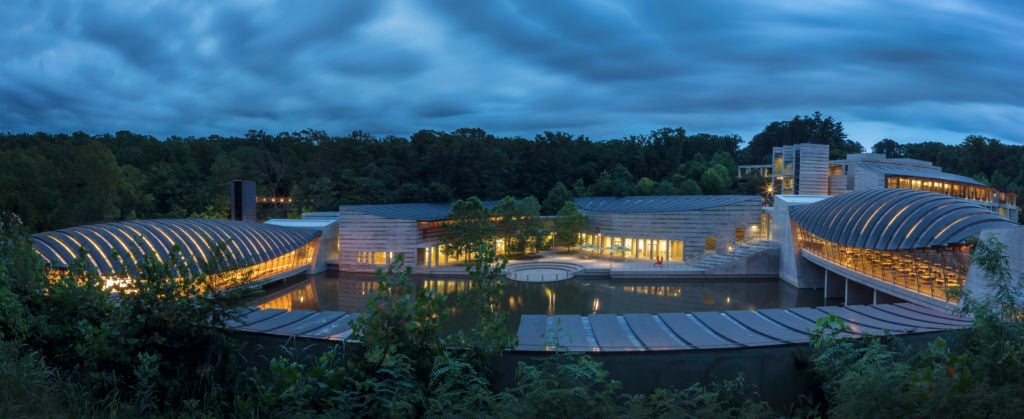
The hotly anticipated group show shines a spotlight beyond the usual art-world centers.

Caroline Elbaor

In February of 2020, the Crystal Bridges Museum of American Art in Bentonville, Arkansas will publicly unveil the Momentary—a new, 63,000 square foot satellite space focusing solely on contemporary art. The Momentary will open its doors with “State of the Art 2020,” a highly anticipated, 60-artist exhibition with a roster reflective of the various artists and issues at the forefront of contemporary art.
Overseen by Lauren Haynes, curator of visual arts at the Momentary and curator of contemporary art at Crystal Bridges, “State of the Art 2020” promises to be sprawling in nature. More than 100 works—spanning painting, sculpture, photography, video, performance, and mixed media—will be on view across both the Momentary and Crystal Bridges venues, with a number of these being site-specific.
The 2020 exhibition is the second iteration (following 2014’s successful “State of the Art: Discovering American Art Now”) in what the institution has announced will be a series of exhibitions staged every five years. But unlike many other recurring art world events, ”State of the Art” privileges inclusion and geographic diversity, with artists hailing from across the United States, including cities and towns like Madison, Wisconsin; Albuquerque, New Mexico; and even Spotsylvania, Virginia.
Here, Artnet News highlights six artists to watch in “State of the Art 2020.”
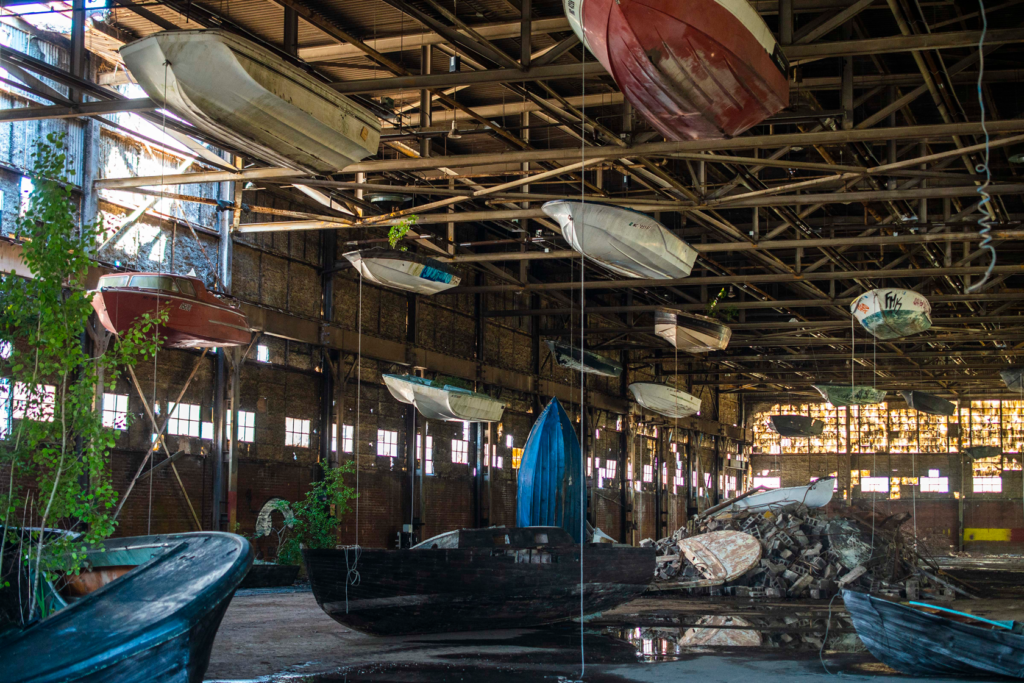
Installation view of Scott Hocking’s Bone Black (2019). Courtesy of Cranbrook Art Museum.
The Michigan metropolis is inseparable from Hocking’s elaborate site-specific installations, which are largely comprised of found objects sourced from abandoned industrial spaces and city streets. A 2019 work, Bone Black, saw Hocking take 33 abandoned boats—which he calls “shipwrecks”—that had been dumped across Detroit to create a large-scale installation in an empty riverfront warehouse.
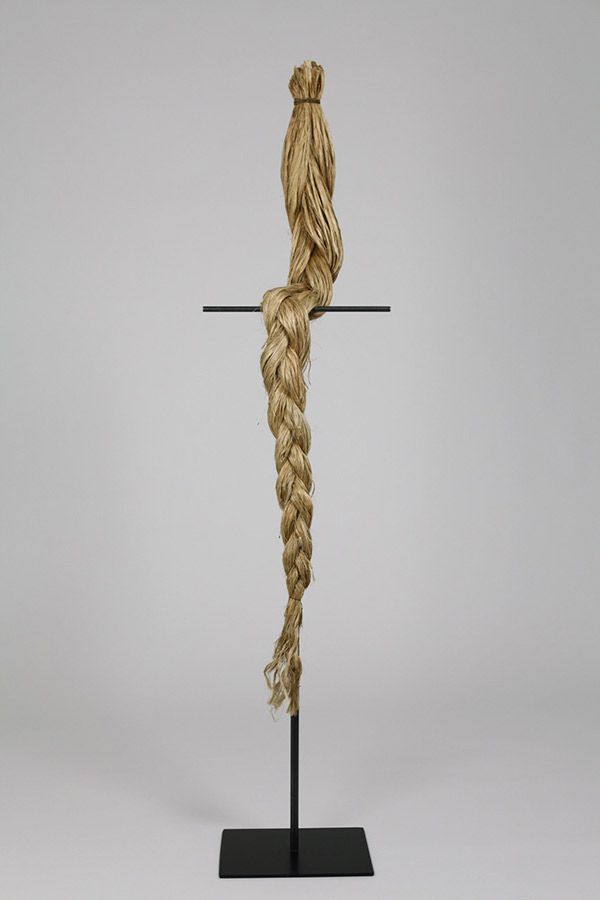
Frances Bagley, PERCHED. Courtesy of the artist.
Bagley has long been an established name in art circles, and is a prominent figure in the Dallas and greater Texan art scene. Working primarily in sculpture, she uses materials like woven-wicker or human hair to produce forms related to the body, and in particular, female anatomy. (Fun fact: in the 1980s, she was a founding member of the Dallas-based, all-women collective called “Toxic Shock.”)
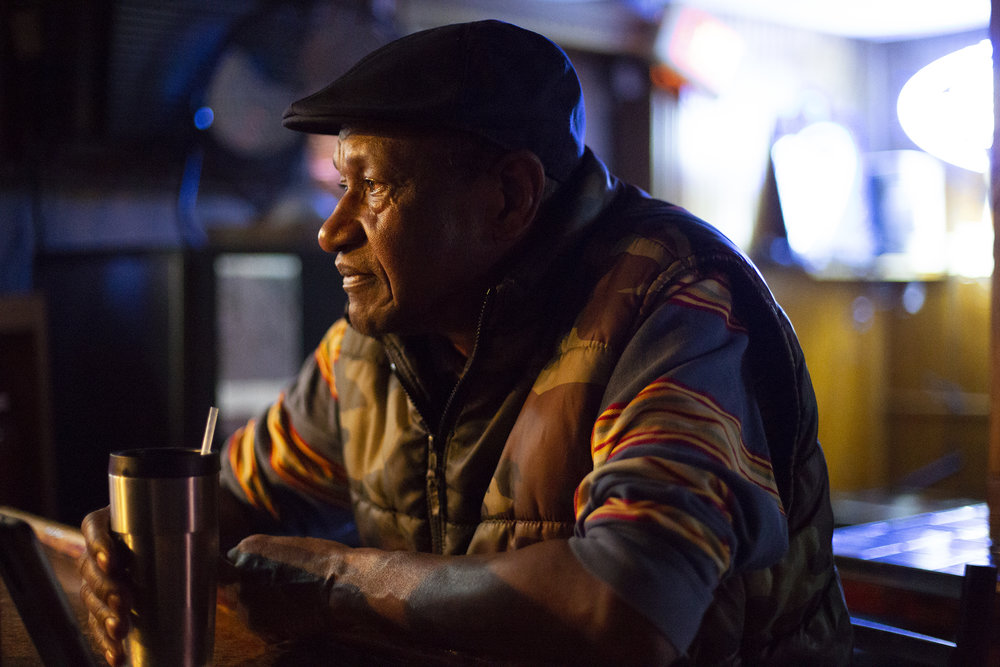
From the series “Vanishing Black Bars & Lounges” by L. Kasimu Harris. Courtesy of the artist.
Harris photographs the people of New Orleans as a way to represent the underrepresented lives of black Americans. Ongoing series include “Vanishing Black Bars & Lounges“, focusing on the history and decline of “safe spaces” within black communities; “War on the Benighted”, looking at education inequality; and “A Blackness Continuum”, which underscores police brutality against black men.
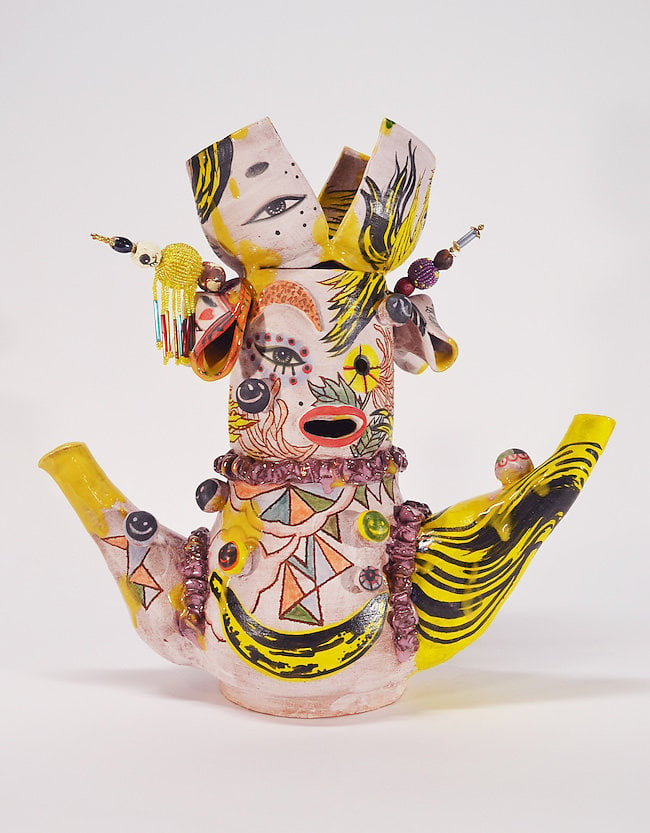
Jiha Moon, Kimchi (2019). Courtesy of the artist.
Originally from Daegue, Korea, the Atlanta-based artist makes paintings, ceramic sculptures, and installations exploring identity as it is impacted by globalization and the transition between cultures. She merges her influences from the histories of Eastern and Western art–specifically Korean temple paintings and folk art–with Internet iconography, like emoticons and emojis, to demonstrate the fluidity of identity.
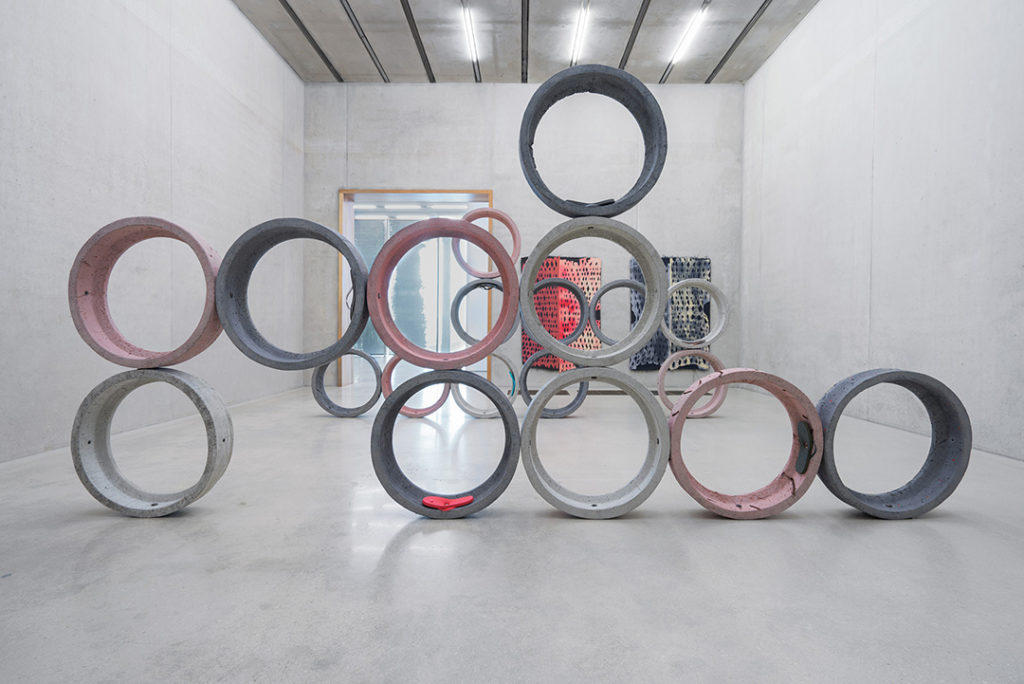
Installation view from “Nicolas Lobo: Leisure Pit” at Perez Art Museum Miami.
Lobo employs zany materials—including cough syrup and Play-Doh—in tandem with unconventional processes (like pouring gasoline on foam to create coral-shaped structures) to hone in on the cultural zeitgeist. In recent projects staged at Red Bull Arts in New York City, the Museum of Contemporary Art, Detroit, and the Pérez Art Museum, Lobo dissected concepts such as self-care, wellness, and the impact of capitalism on daily life.
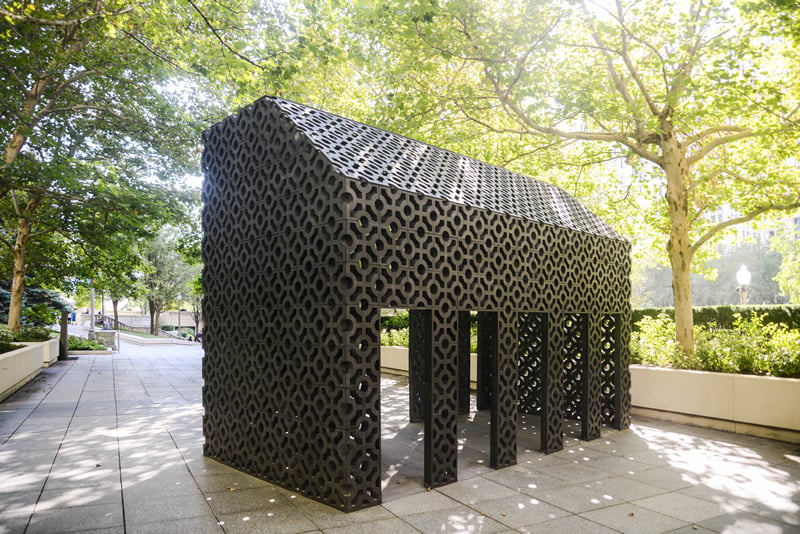
Installation view of Edra Soto’s Screenhouse (2019), courtesy of the City of Chicago.
Soto’s large-scale sculptures and architectural interventions draw heavily from vernacular forms found in her native Puerto Rico. “I’m thinking about the origins and authors of these decorative Puerto Rican patterns,”she said when discussing her recent win of Foundwork’s inaugural Artist Prize, “and that is not a part of the history that is taught in school.” The artist’s profile has also been raised recently by the unveiling of Screenhouse, a concrete sculpture sited in Chicago’s Millennium Park, where it will be on view through 2021.